An opportunity to reach thousands with the Raspberry Pi
Dr Bob Brown is a former professor who taught at Kennesaw State University and Southern Polytechnic State University. He holds a doctorate in computer information systems. Bob is also a Raspberry Pi Certified Educator, and continues to provide exceptional classroom experiences for K-12 students. The moment his students have that “Aha!” feeling is something he truly values, and he continues to enjoy that experience in his K-12 classroom visits.
After retiring from teaching computing in 2017, Bob continued his school visits, first on an informal basis, and later as an official representative of KSU’s College of Computing and Software Engineering (CCSE). Keen to learn more about K-12 Computing, Bob applied to the Raspberry Pi Foundation’s Picademy program, and attended Picademy Atlanta in 2018. Here’s his story of how he has since gone on to lead several Raspberry Pi Teachers’ Workshops, inspiring educators and students alike.
“I was amazed at the excitement and creativity that Picademy and the Raspberry Pi created among the teachers who attended,” Bob says. “After reading about the number of applicants for limited Picademy positions, I realized there was unmet demand. I began to wonder whether we could do something similar at the CCSE.”
Bob spent over a hundred hours developing instructional material, and raised over $2,000 from Southern Polytechnic alumni. With the money he raised, Bob conducted a pilot workshop for half a dozen teachers in the autumn of 2018. The workshop was free for participants, and covered material similar to Picademy, but in a one-day format. Participants were also given a Raspberry Pi 3B+ and a parts pack. Bob says, “I couldn’t have done this if I had not attended Picademy and been able to start with the Picademy material from the Raspberry Pi Foundation.”
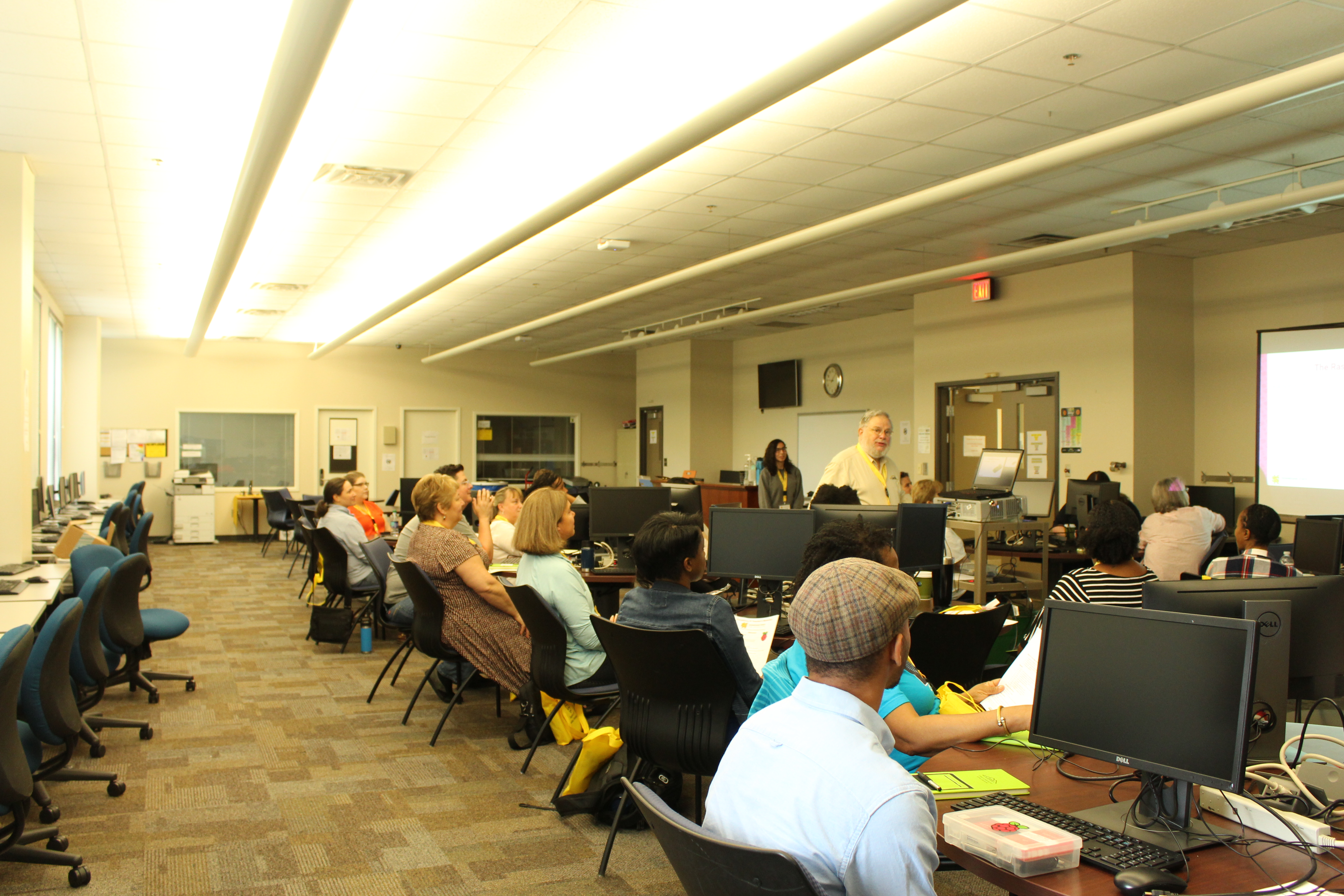
“[The CCSE] helps improve access, awareness, and sustainability to middle and high school students and teachers.” — Jon Preston
“The College of Computing and Software Engineering at KSU STEM+Computing project helps improve access, awareness, and sustainability to middle and high school students and teachers. CCSE faculty and undergraduate students build learning materials and deliver these materials on-site to schools in an effort to increase the number of students who are energized by computing and want to study computing to help improve their careers and the world. Given the price and power of the Raspberry Pi computers, these devices are a perfect match for our project in the local schools,” says Preston.
Teachers came from all over Georgia and from as far away as Mississippi to attend the workshops. For some of the teachers, it was their first time exploring the concept of physical computing, and the hands-on approach to the workshop helped them set their own pace. The teachers really enjoyed the workshop, and left incredibly inspired. “Teacher workshops have a multiplier effect,” says Brown. “If I teach 30 students, I’ve reached 30 students; if I teach 30 teachers, I potentially reach thousands of students over a period of years.”
Another great contribution to the program was the addition of college student facilitators, who provided individual support to the teachers throughout the day, making it easier for everyone to have the assistance they needed.
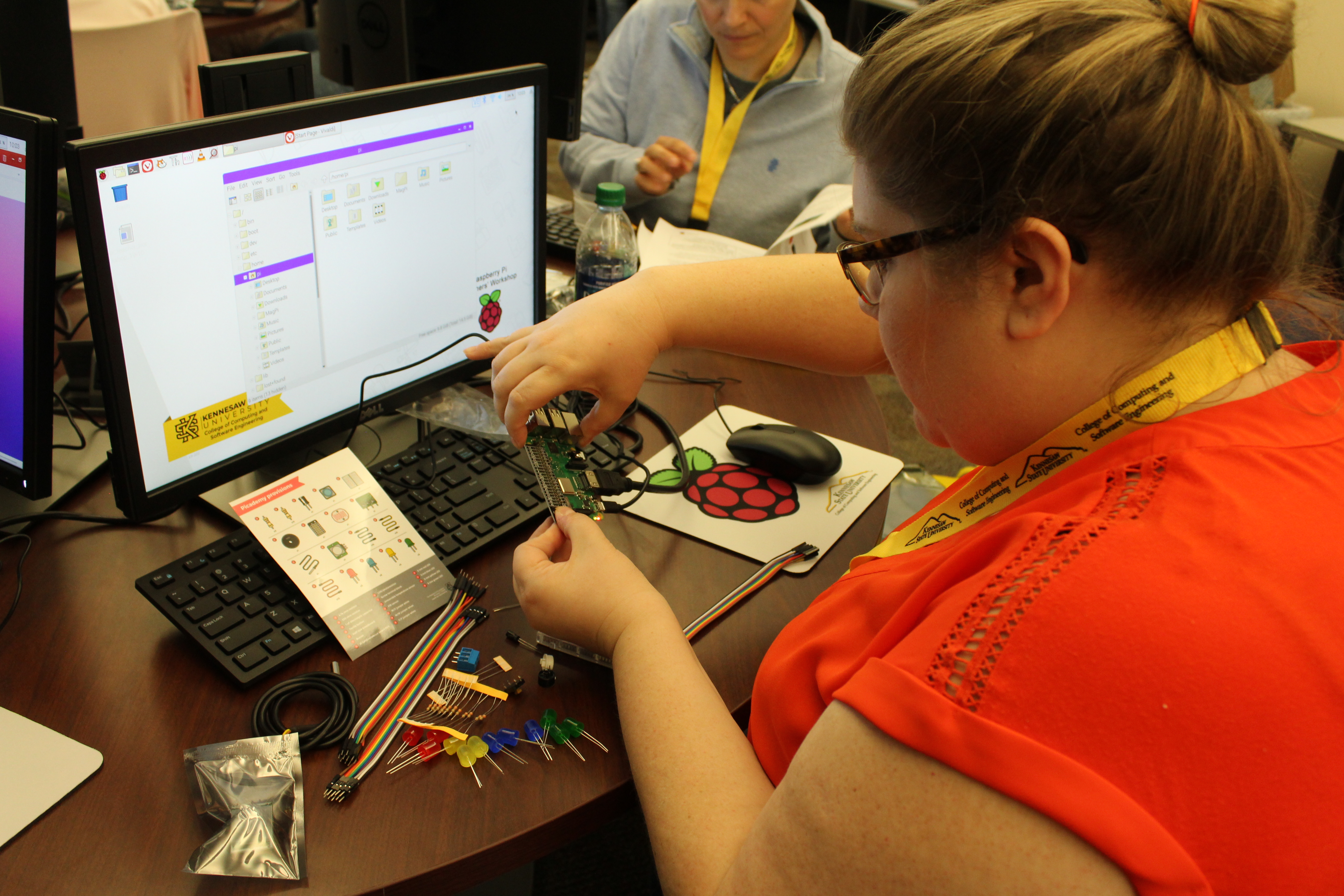
By the end of the summer, more than 150 K-12 teachers will have participated in a CCSE Raspberry Pi Teachers’ Workshop.
The Raspberry Pi Teachers’ Workshops have become a regular part of the outreach efforts of the CCSE. Grants from State Farm Insurance, 3M Corporation, and a few very generous individual gifts keep the workshops free for K-12 teachers, who also take home a Raspberry Pi and extra components and parts. Participants are also invited to join an online forum where they can exchange ideas and support each other. By the end of the summer, more than 150 K-12 teachers will have participated in a CCSE Raspberry Pi Teachers’ Workshop. You can find more information about the workshops here.

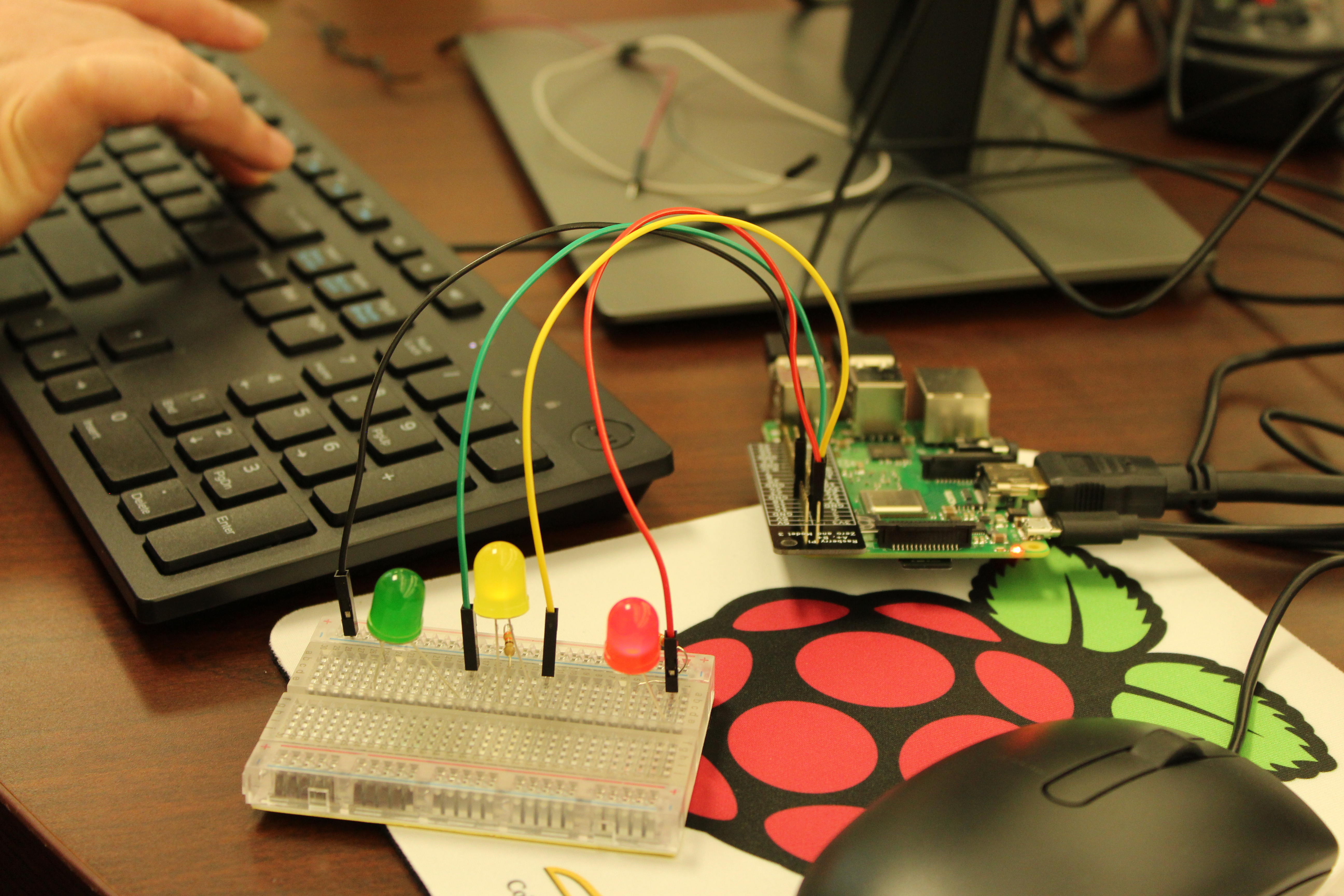


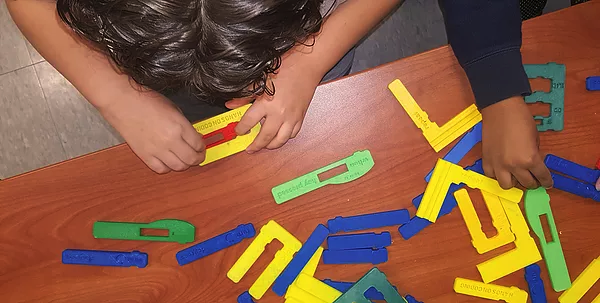
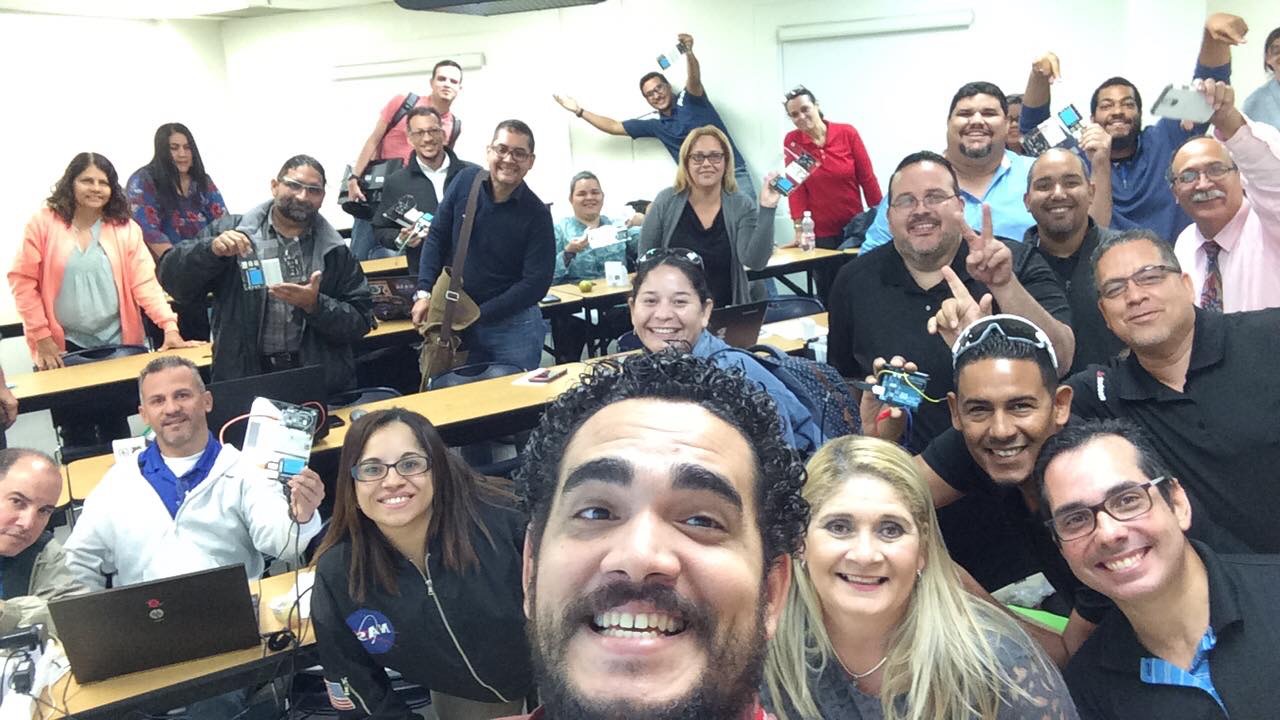
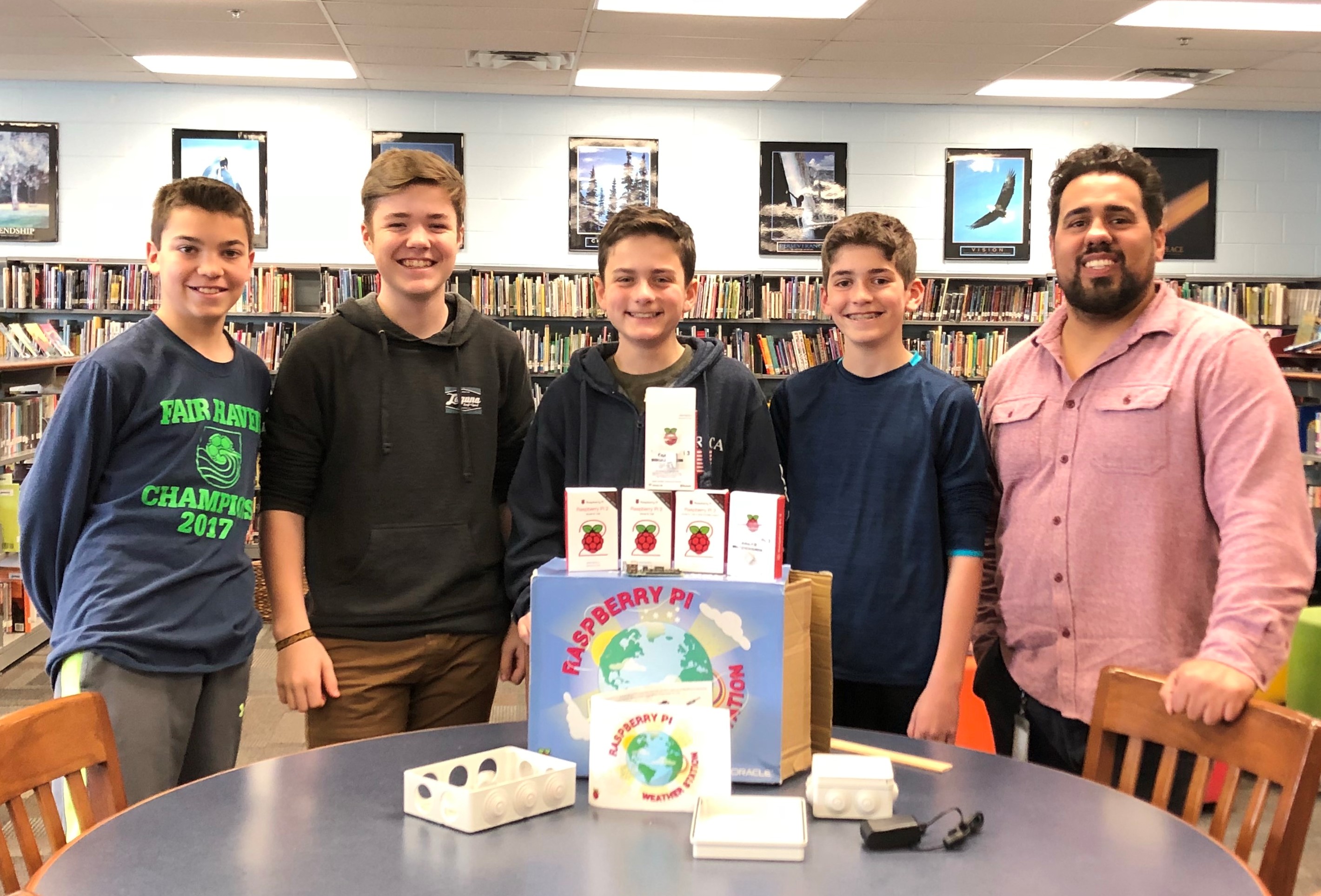

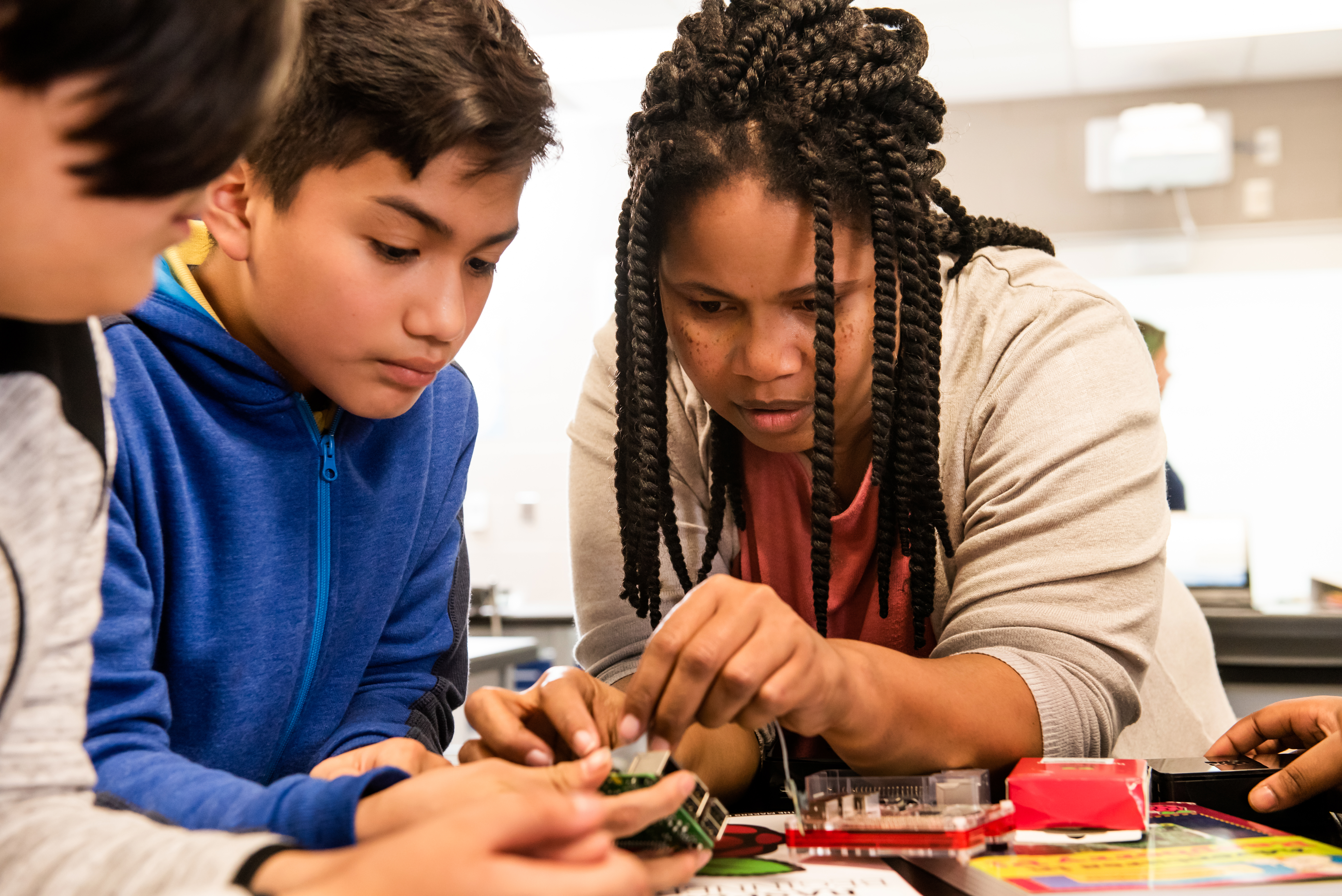
7 comments
Simon Lambourn
Great article and great initiative. But could you include a ‘translation’ of what K-12 means for non-US readers please? (I assume it is a year group of students).
Bob Brown
Oops. K-12 in the United States is kindergarten (about 5 years old) through the end of high school in the 12th grade at about 18 years old.
Simon Lambourn
Thankyou Bob. I learn a lot more than just coding from the Raspberry Pi blog :-)
steve
K-12 stands for “Kindergarten through 12th grade”, encompassing the age range of US public schools. The US public school system is essentially set up like so (this is a simplification and variants exist):
Elementary School
Kindergarten: ages 5-6
Grade 1: age 6-7
Grade 2: age 7-8
Grade 3: [etc.]
Grade 4
Grade 5
Grade 6
———————-
Junior High School
Grade 7
Grade 8
———————-
High School
Grade 9
Grade 10
Grade 11
Grade 12: age 17-18
Andrew
Great article! Fantastic initiative for Georgia educators.
Morgan Chileshe
The training initiative sounds attractive. Peharps it could be applied in the Afican education environment. Please, feel free to advise on how I could implement the same in Africa. Thank you…
Bob Brown
The biggest advantage of Picademy is that participants leave with a Raspberry Pi and parts pack. We also offer pastries and coffee in the morning and lunch at noon. So, your first task is fund-raising. The teacher kit (Pi, parts pack, power supply, etc.) costs about US $80.00, so we plan on spending about $100 per teacher.
After that, it’s a matter of doing the work. All the material for our workshops is available here: https://drive.google.com/open?id=12etu4Q1KWom4VjFS1zhmdSTYtNSNTduE and is free to use by anyone. I’m working on a “Workshop Handbook” that explains the steps to planning, organizing, conducting, and evaluating such workshops, but it’s not close enough to finished to be useful yet. It will probably be at the link above when I finally get it ready.